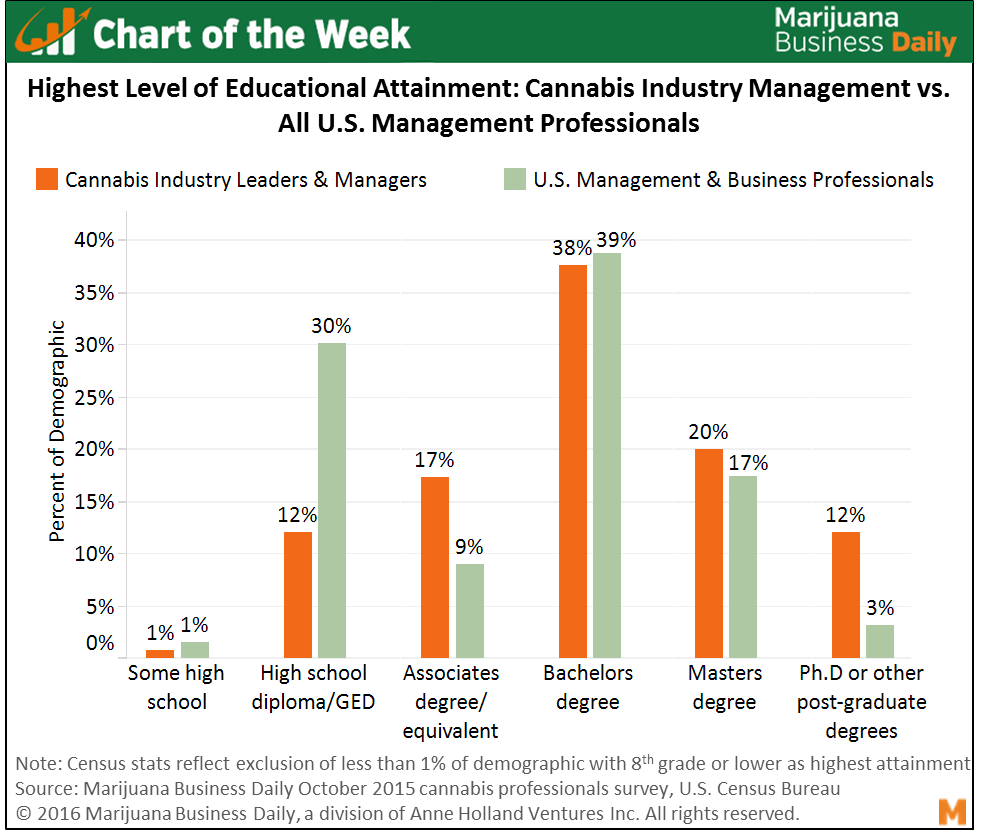By John Schroyer
If anyone knows the Illinois medical marijuana scene, it’s Bob Morgan.
Morgan was appointed by former Illinois Gov. Pat Quinn while he was still in office to oversee the implementation of the state’s MMJ program, which Quinn signed into law in 2013.
Morgan stepped down from the post in May 2015 and moved into private practice with a Chicago law firm.
In his new role, he still works closely with the cannabis industry, but not just in Illinois – he also does consulting work with companies in up-and-coming markets, such as Maryland and Hawaii.
Marijuana Business Daily spoke with Morgan recently about the challenges facing MMJ companies in Illinois and whether the program will prove viable in the long run.
What do you make of the back and forth between the state panel that has recommended twice now expanding the qualifying condition list and the reticence from the health commissioner to do so?
On one hand, the advisory board is functioning as intended. There’s reasoned medical judgment, there’s review of research studies and there’s consideration of individual patient testimony. Yet there’s a lot of disappointment in the outright rejection of additions that were proposed to the health department.
The state has suggested that we need more time to evaluate the success of the program, but I’m skeptical that we’ll see a different result in the second round of this consideration. I think expansion of the program is more likely to come from legislative action – as opposed to the way it’s working now, from the advisory board.
I think that we have time, and there’s a possibility before the program expires at the end of 2017 to expand the medical conditions. The real question is what mechanism we use to do that.
One of the ongoing questions in Illinois – and Minnesota as well – is the relatively small number of patients who have registered so far. Is the Illinois program viable at this point with so few patients?
That’s a really big question for the industry right now. When you look at other medical marijuana programs around the country, the vast majority of their patient populations – when they’ve had successful medical cannabis programs – generally speaking come from the category of chronic pain, which is missing from Illinois’ law.
That’s a big bulk of the population that could be benefiting from medical cannabis.
There’s also the lack of (post-traumatic stress disorder), which is another category that states have or are adding, and it’s another that Illinois doesn’t have in their law. So our patient population is low, and I’d love to see that continue to increase and make sure that those that are eligible actually get to participate.
But even right now, with the conditions as they are, there are hundreds of thousands of people in Illinois that suffer from those conditions. So my bigger issue is making sure that those that could benefit from cannabis have access to it.
In a worst-case scenario, if conditions such as chronic pain or PTSD aren’t added to the list by the time the program sunsets, what’s going to happen to companies that have invested a lot to get into the Illinois market? Are they going to be able to survive over the next year?
I think the medical cannabis program is here to stay in Illinois. There are a lot of lives already being helped by medical cannabis, even in the last month. Hundreds of jobs are being created, and there’s more and more public support for the program.
To me, there’s no question that the program is going to survive, and businesses certainly were aware that it would be a few years before they recovered the big bulk of money they spent on developing their facilities.
And my sense is that businesses, while concerned about it, certainly know that it’ll be a long haul and a long play as opposed to a short-term gain.
So I think the industry is going to survive. It’s going to expand and change over time, but the manner in which it expands and changes, that’s one of the big questions that’s going to be answered.
What makes you so optimistic that the program will be renewed?
For one thing, there’s really no precedent nationally of a state going in the opposite direction (and folding it entire medical marijuana program).
Politically and legislatively, I think the support is already there for continuing the program. Getting a law passed to do that is a different story. The question for the state is, ‘What does the first six months, 12 months look like? What are the things we can change to make it better?’
And then continue to evaluate that as the sunset approaches at the end of 2017.
Everything that’s happened so far suggests that this is a program Illinois can manage, and manage safely, and manage in a way that can help people that are suffering. And those are really strong indicators of where the state is going to go.
Any words of advice for businesses in the state that may be struggling?
Illinois issued licenses to these growers and dispensaries based on some of the best applications and the best models in the country for a cannabis business. The financial situation will improve, the number of patients will grow, and if they continue to do what they’re doing right now, which is enriching patients’ lives, I think the rest is going to take care of itself.
This interview has been edited for length and clarity.
John Schroyer can be reached at johns@mjbizmedia.com




